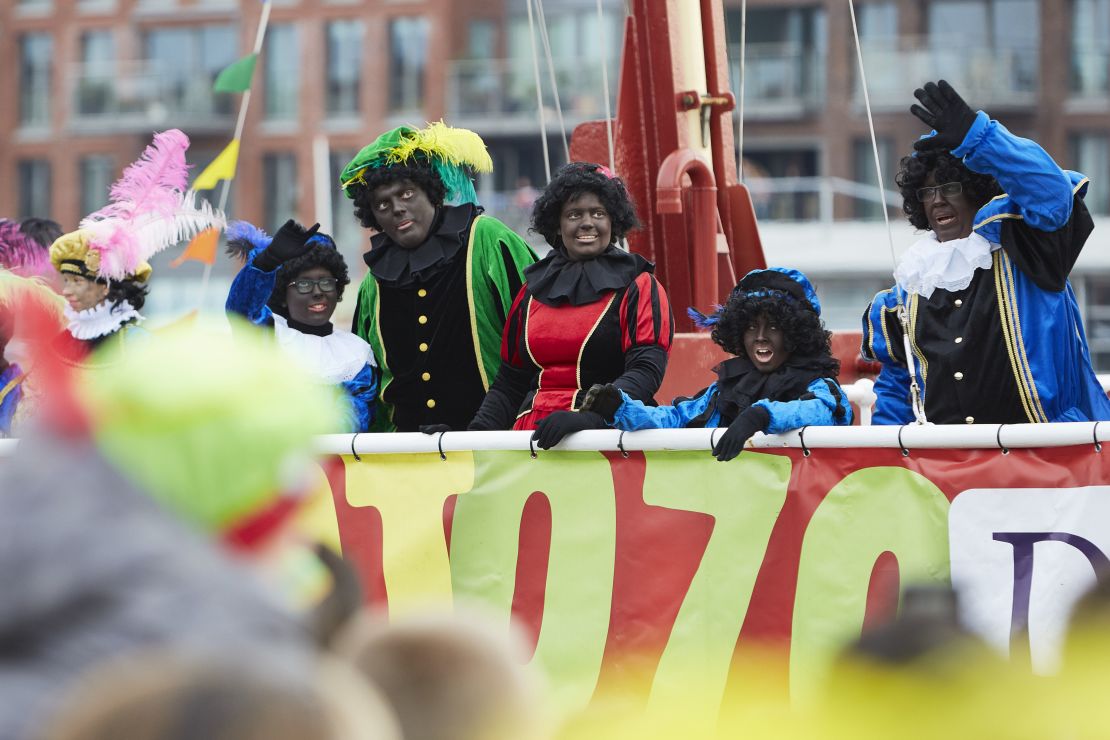The Dutch Prime Minister has said his views on the national tradition of dressing in blackface to portray the character of “Zwarte Piet,” or Black Pete, have undergone “major changes” – but he won’t go as far as banning it.
Mark Rutte made the comments in parliament on Thursday, as anti-racism protestors across the Netherlands took to the streets in reaction to the death of George Floyd. The protests were organized in part by a group called “Black Pete is Racism.”
The Dutch tradition of “Black Pete” typically sees a white person wearing full blackface, an Afro wig, red lipstick and earrings, and is often part of the Netherlands’ St. Nicholas festivities in December.
Popularized in a 19th-century children’s book, the character still features in street carnivals and on Dutch television. But the character has increasingly come under criticism in recent years for perpetuating racist tropes.
“I myself have also experienced major changes about Black Pete,” Rutte said during a late-night parliamentary debate. “I also belonged to that group that said, ‘Black Pete is simply black.’”

Rutte said his views had been influenced by speaking with people with “a darker skin color” and young children who told him, “‘I feel incredibly discriminated against because Pete is black.’”
Still, he said, the government should not impose a ban on Black Pete, and he expressed sympathy for those who do not want to let go of “that symbol.”
The politician said he believed the practice “is changing over time, under pressure from the societal debate” and his expectation was that in a number of years “you will hardly see any more Black Petes.”
“There are also people who say, ‘I do not want – while I am totally not discriminatory or racist – to be forced to let go of that symbol, which I have never seen as a discriminatory symbol.’ That makes this discussion so nuanced, and so complicated,” he said.
The Netherlands is one of several European countries grappling with a longstanding tradition of blackface. Anti-racism campaigners in neighboring Belgium have also called for an end to the tradition of blackface during festivals and carnivals.






